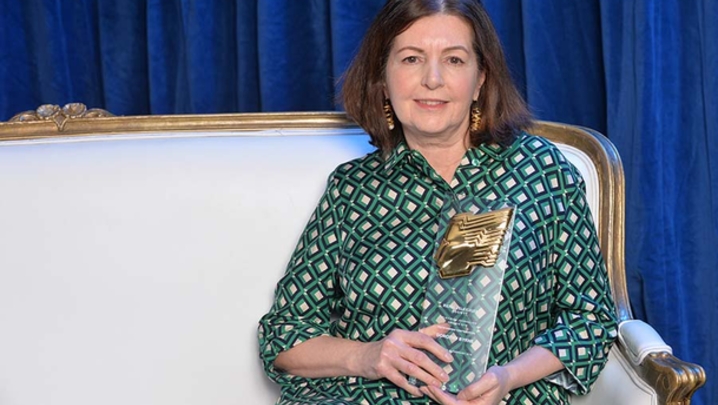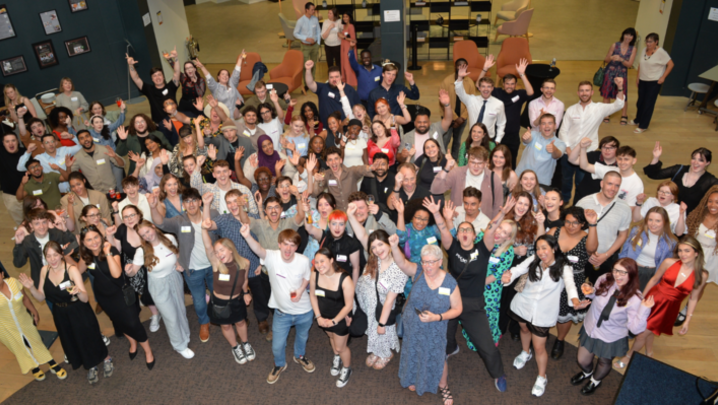Joe Molander lifts the lid on the struggle to bring hard-hitting current affairs shows to our screens
Investigative journalism has been having a tough time of it lately. In the broadcast space, Vice, once feted for its original and irreverent reporting, this year announced it would stop publishing new content. BBC Two current affairs flagship Newsnight was also cut by 10 minutes and deprived of top reporters such as its Diplomatic Editor, Mark Urban. Hundreds of jobs were lost at Vice, while more than 30 staff have been laid off at Newsnight.
Tellingly, in February, Isobel Yeung accepted the award for On-Demand Journalism at the RTS Television Journalism Awards for her work with Vice, the day after the once-unstoppable organisation made her redundant.
As the industry continues to tighten its belt, investigations are an increasingly hard sell. They soak up time and resources, tend not to be ratings winners and run the risk of litigation. “It’s a harder and harder environment to work in for a number of reasons,” says David Modell, whose company David Modell Productions makes documentaries for, among others, the BBC’s Panorama. Commissions are both rarer and less remunerative than before, he told Television. He predicts investigative broadcast work will become even more precarious, and that companies like his “just won’t be able to continue”.
“A lot of current affairs is made by smaller companies who are all having a really tough time at the moment,” says Tom Porter, Creative Director for production company BriteSpark Films, which has worked with Panorama and Channel 4’s Dispatches. He forecasts that independents will consolidate to the point where there are just a small number of “mega-indies” left standing.
“The question, then, is: does current affairs production fit into that?” he says. “Is it still something those mega-indies want to be doing? Because it doesn’t make money. You do it for the passion and love of it.”
However, Porter emphasises that the slowdown is “much worse” in genres outside current affairs TV. Public service broadcasters such as the BBC, ITV and Channel 4 are obliged to help “preserve” current affairs, he says.
By their nature, topical programmes can’t always be run as repeats for long, unlike their scripted cousins. Commissioners need to maintain a strong pipeline of new programmes, notes Samuel Palmer of Cheeky Scamp Films. “You can’t show me a [current affairs] film you made a year ago and expect me to be as interested, because it’s not about now,” says Palmer, who has also made films for Panorama.
Some programme-makers are more sceptical, though. “I would question whether the appetite for really adventurous, risky investigation is quite there,” one film-maker says. “It’s still there at the commissioner level, but is it there corporately like it was? Possibly not. Since Covid, and during Covid, there’s been a general retreat to certainty.” This means, he says, that production companies looking to pick up commissions and keep the lights on are pitching safer, less ambitious ideas.
Despite these testing times, reporters are still finding reasons to be cheerful. “I’ve spent nearly 50 years in a dying industry,” jokes Dr Paul Lashmar, a former World in Action reporter and now Reader at London’s City University. “If you want to do investigative journalism, you find a way to do it.”
Daniel Hewitt, Investigations Editor at ITV News, spent three years looking into social housing, and is full of praise for the resources the broadcaster provided. “When we spot a story that we think has longevity and is important and requires time, [ITV] throws the kitchen sink at it,” he says.
Hewitt worked with a team of three to comb through reams of correspondence from social housing tenants, and visited as many as they could. The team’s findings helped trigger a parliamentary inquiry, at which Hewitt gave evidence in 2022. He began his remarks by thanking his colleagues – Imogen Barrer, Sarah O’Connell and Sophie Alexander – by name. The next year, the law was reformed through the Social Housing (Regulation) Act.
Hewitt is clear that “we can’t throw resources at every story: we have to pick and choose”. He adds: “It takes a brave editor to have an enormous investigation team working on five or six stories that take months and months to make. No one can really afford to do that any more.”
But Hewitt and his team have found ways to adapt. He points out that they have multiple documentaries and dozens of long-form articles to show for their years of work. “It’s about changing the view of an investigation being one big ‘hit’,” he says. “You can build momentum with several pieces.”
Change also brings opportunity: online outlets have proven to be nimble in a way that big broadcasters often struggle to match. Yeung’s RTS award-winning documentary for Vice, Stealing Ukraine’s Children: Inside Russia’s Camps, focused on accusations of abduction following Russia’s invasion of Ukraine. Despite forming the crux of the International Criminal Court and Council of Europe’s allegations of genocide against Russia, Yeung noticed that the abductions were receiving minimal investigative coverage. So she went to Russia. She and her team were tracked and followed multiple times, but still managed to land an exclusive interview with Russia’s “children’s commissioner”. Yeung’s first question was: “Are you a war criminal?”
Vice may be no more, but its influence lingers. A journalist with experience at a major online news outlet explained that the online outlet's “laidback” culture helped rather than hindered the work. “I would use it to my advantage,” the journalist says. “With the networks, I would have to take a bunch of security with me. [At the online outlet] we had protocols, but… if I felt like it was more beneficial not to have a white ex-military dude with us going into Ethiopia, or wherever, that was allowed.”
Also filling in gaps left by networks are smaller investigative groups. The Bureau of Investigative Journalism has worked with ITV News, Channel 4’s Dispatches and Panorama. Franz Wild, the Bureau’s Editor and a veteran investigative journalist, says he hasn’t observed a major decline in opportunities for collaboration with broadcasters.
A BBC spokesperson says that, despite changes to Newsnight, it is “investing more in investigative journalism”. They pointed to recent Panorama programmes on the Probation Service and abuse at a special educational needs school. “Panorama is shown weekly, in a primetime slot on BBC One, and we show current affairs investigations in primetime slots across our terrestrial channels,” the spokesperson adds.
As smaller, online-focused outlets proliferate, though, “the danger is the landscape will become more diffuse”, says Richard Watson, an investigative reporter who recently left Newsnight after 25 years. “The stories will be out there, but they might have less impact.”
Thankfully, reporters are committed to their trade. Hewitt spoke to Television while on the road and filming for ITV News’s general election coverage. Yeung spoke over Zoom, two weeks after giving birth. “The media landscape is a rodeo right now,” concludes Wild. “You’ve got to do everything to stay in it.”







